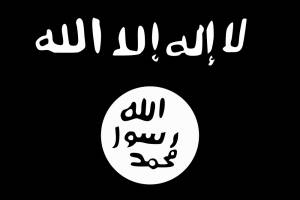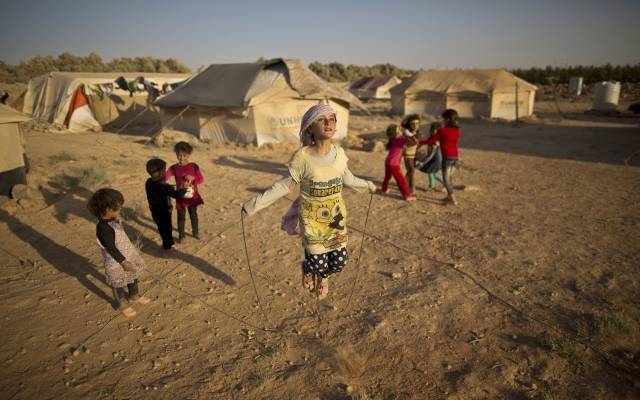The upheaval in the Middle East has deeply affected the children in the region as they are prevented from attending school, and measures must be taken to reverse the tide, UNICEF warns in a report.
The turmoil in the Middle East and North Africa, the rise of Islamic extremism and terror and the dissolving of the Arab states in the region are preventing more than 13 million children, out of a total of 34 million, from attending school, the United Nations Children’s Fund (UNICEF) said in a report on Thursday. This means that 40 percent of children in the region are not receiving a proper education. The dropout rate could increase to 50 percent in coming months as conflicts intensify, the report warned.
The report, “Education Under Fire,” focuses on the impact of violence on schoolchildren and education systems in Syria, Iraq, Lebanon, Jordan, Turkey, Yemen, Libya, Sudan and the Palestinian Authority (PA), which have been directly or indirectly impacted by violence and political upheaval in the region.
“Attacks on schools and education infrastructure – sometimes deliberate – are one key reason why many children do not attend classes. In Syria, Iraq, Yemen and Libya alone, nearly 9,000 schools are out of use because they have been damaged, destroyed, are being used to shelter displaced civilians or have been taken over by parties to the conflict,” the report said.
Fear of violence and terror has caused parents to keep children home from school.
“In Jordan, Lebanon and Turkey, more than 700,000 Syrian refugee children are unable to attend school because the overburdened national education infrastructure cannot cope with the extra student load,” the report added.
Syria, as a complete and sovereign state, has all but dissolved as a result of over five years of civil war in the country and the advance of the Islamic State (ISIS) terror organization. While hundreds of thousands have found their deaths in the fighting, millions of others have fled and begun to roam the globe in search of a new place they can call home.
“The destructive impact of conflict is being felt by children right across the region,” said Peter Salama, regional director for UNICEF in the Middle East and North Africa. “It’s not just the physical damage being done to schools, but the despair felt by a generation of schoolchildren who see their hopes and futures shattered.”
“We are on the verge of losing a generation of children in this region,” he said. “We must act now or we will certainly regret the consequences.”
The report highlights a range of initiatives which can help children learn even in the most desperate of circumstances, but says the funding such work receives “is not commensurate with the burgeoning needs, despite the fact that children and parents caught up in conflict overwhelmingly identify education as their number one priority.”
UNICEF called on the international community, governments that are hosting the refugees, policy makers, the private sector and other partners to expand the informal education services, especially for vulnerable children, and to provide more support to national education systems in conflict-hit countries.
“The forces that are crushing individual lives and futures are also destroying the prospects for an entire region,” the report said.
ISIS A Key Player in Hindering Education
Over 670,000 children in Syria have been deprived of education after the Islamic State (ISIS) ordered schools to be closed, the Syrian Observatory for Human Rights (SOHR) reported in January.
“In December there was a decree of the Islamic State ordering the stoppage of education in areas under its control…. This is seriously affecting the schooling of an estimated 670,000 children,” UNICEF spokesman Christophe Boulierac told the press that month.
ISIS ordered that schools teach only those texts that are “compliant with religious rules,” Boulierac said, adding that teachers in ISIS-controlled areas are undergoing indoctrination and training.
Children were also the target of ISIS strikes on schools, UNICEF reported. At least 160 pupils died and 343 wounded in school strikes.
“In addition to lack of school access, attacks on schools, teachers and students are further horrific reminders of the terrible price Syria’s children are paying in a crisis approaching its fifth year,” Hanaa Singer, UNICEF representative in Syria, stated.
By: Max Gelber, United with Israel

Sign the Petition to Unite Against Islamic Terror
Petition to the United States and World Powers:
We urge our leaders to reject all supporters of Islamic Terror. Do NOT join forces with Iran, Hamas and other extremists to fight ISIS. Unite with Your Friends - Not with Your Enemies.
See our Privacy Policy